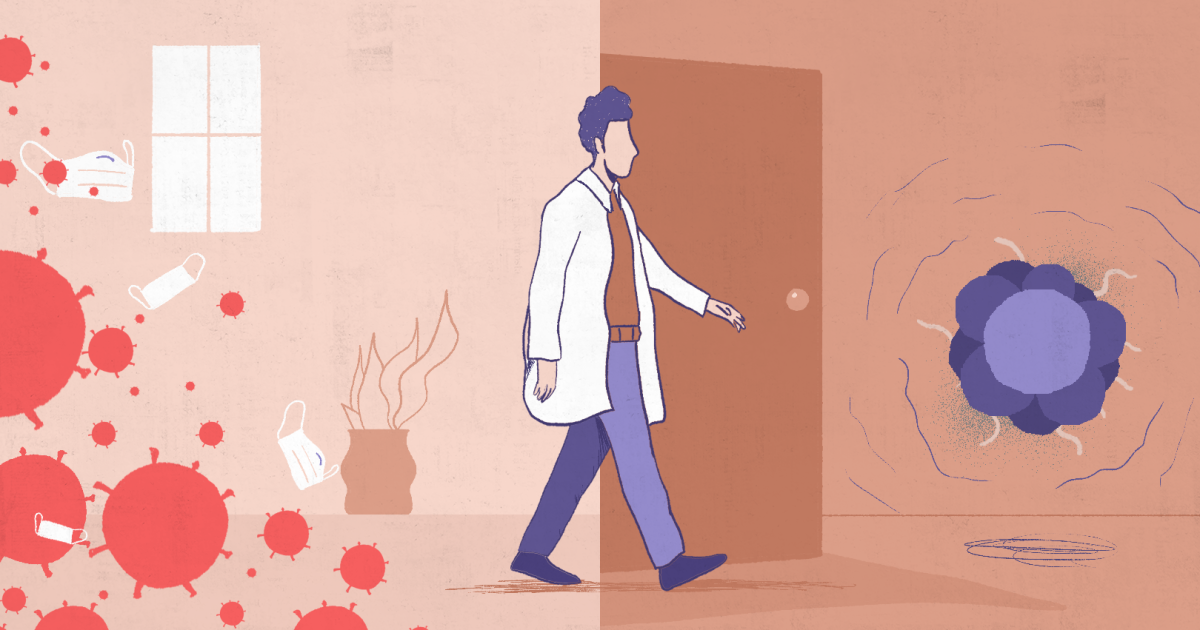Health
What is monkeypox and how can it be treated? – Al Jazeera English

As the world continues to battle COVID-19 and many countries look at ways to recover from the pandemic, a new virus is making headlines worldwide.
The monkeypox virus is now thought to be nearing 100 cases in 12 countries, and more are expected as surveillance is stepped up. The first case of this current outbreak was detected in the United Kingdom on May 7, and so far, infections have been confirmed in nine European countries: the UK, Spain, Portugal, Germany, Belgium, France, the Netherlands, Italy and Sweden, as well as the United States, Canada and Australia.
Although the first case detected in the UK was linked to travel to Nigeria – which reports about 3,000 monkeypox cases a year – subsequent cases have not been tracked back to Africa, puzzling many scientists and doctors.
What is unusual about the current outbreak is that cases are being diagnosed in countries where monkeypox is a rare occurrence, and the fact that many cases being identified are not linked to Western and Central Africa makes this outbreak unprecedented.
What is monkeypox?
Monkeypox is caused by a virus endemic to tropical parts of Africa. Despite its name, monkeypox is rarely spread through infected monkeys, but is more common in rodents such as squirrels, rats and mice. The virus is known as zoonotic – meaning it is spread to humans through infected animals via blood, infected fluids or lesions on the animal.
Human-to-human transmission can result from close contact with respiratory secretions, skin lesions of an infected person or recently contaminated objects. Transmission via droplet respiratory particles usually requires prolonged face-to-face contact, which puts health workers, household members and other close contacts of active cases at greater risk. Whether the virus can be spread via the airborne route is currently under investigation, though currently there is no evidence to support this.
Although first identified in laboratory monkeys in 1958, monkeypox was first identified in a human in 1970 and is a disease usually confined to parts of Africa, being most common in rural parts of the Democratic Republic of the Congo, though outbreaks have been reported in Gabon, Cote d’Ivoire, Liberia, Nigeria, Benin, Cameroon, Sierra Leone and South Sudan. The first outbreak outside of Africa occurred in 2003 affecting people in the US; it was linked to infected pet prairie dogs that had been imported from Ghana and housed with infected rodents. Since then, there have been small numbers reported across the globe, linked to travel.
Initial symptoms of monkeypox include fever, headache, muscle aches, backache, swollen lymph nodes, chills and exhaustion. A rash can develop, often beginning on the face, then spreading to other parts of the body including the genitals. The rash changes and goes through different stages – initially it can be a fluid-filled blistering rash that resembles chickenpox or syphilis, before finally forming a scab that later falls off. Most people recover from monkeypox in a few weeks without treatment.
The diagnosis is usually a clinical one, meaning the signs and symptoms are enough for clinicians to make the diagnosis without the need for tests. However, if monkeypox is suspected, clinicians should take a sample of fluid from one of the lesions and send it to the lab for a polymerase chain reaction (PCR) test in order to confirm the diagnosis. Blood tests are not thought to be as accurate and should not be used routinely.
The monkeypox virus is part of a family of viruses known as “DNA viruses”. Unlike the SARS-CoV-2 virus that causes COVID-19, which is an RNA virus, DNA viruses mutate at a much lower rate as they are better at identifying errors in their genetic makeup and correcting them during the replication process. This is important as it will help scientists better understand why the current outbreak of monkeypox is happening – has the virus itself changed or is it just in the right place at the right time? It is too early to be sure. The current strain is thought to be related to a strain usually found in West Africa, which is associated with mild symptoms and a low death rate, around one percent.
Who is being infected?
This outbreak certainly feels different to previous outbreaks outside of Africa.
Aside from the initial cases, many of the people infected have no links to travel or to anyone from Africa. Unusually, the virus has been detected in a disproportionate number of men who have sex with men. Monkeypox is not known to be a sexually transmitted virus, but sexual contact would constitute as close contact, one of the main routes by which the virus is known to spread.
It may be that members of the LGBTQ community are better at getting sexual health checks, so the virus is simply being picked up more here than in the heterosexual community. Whatever the reason, it remains important that nobody who is infected is stigmatised, both for their wellbeing and to help continue to monitor cases and outbreaks.
Increased travel after a period of travel restrictions during the COVID pandemic may also be a factor.
What is concerning is that the cases being found across Europe and the world are not linked, meaning there is a missing piece to the puzzle in how this virus is being spread.
The monkeypox virus is part of the same family the smallpox virus comes from. Older generations will have been vaccinated against smallpox, eradicating the disease and offering them some protection against monkeypox. It may be that with most younger generations not being vaccinated against smallpox, the monkeypox virus has been able to spread more easily.
Is there any treatment or a vaccine available for monkeypox?
For the vast majority of people, signs and symptoms of monkeypox will resolve on their own, without any treatment. Rest, plenty of fluids and good nutrition are all that are usually required.
The risk of serious illness may be greater in pregnant women, children and those with weaker immune systems.
Currently, there is no specific vaccine available for monkeypox, however, the smallpox vaccine has been shown to offer 85 percent protection against monkeypox. At the present time, the original (first-generation) smallpox vaccines are no longer available to the general public. Scientific studies are now under way to assess the feasibility and appropriateness of vaccination for the prevention and control of monkeypox. Some countries have, or are developing, policies to offer vaccines to people who may be at risk such as laboratory personnel, rapid response teams and health workers.
An antiviral agent known as tecovirimat that was developed for smallpox was licensed by the European Medical Association (EMA) for monkeypox in 2022 based on data in animal and human studies. It is not yet widely available.
Understanding how this current outbreak is spreading will be key to breaking the chain of transmission and getting numbers under control. Going forward, our relationship with animals needs to be evaluated. Zoonotic spread of viruses will continue to cause concern while we encroach on the environments of wild animals, and handle them as part of science, the food and the pet trade.
How worried should we be?
Most scientists agree that this current outbreak of monkeypox, though important to understand, is unlikely to cause another pandemic akin to SARS-CoV-2.
This is not a new virus, we have known about it for many years and have a good understanding of its structure and replication process. We already have a good vaccine available in the form of the smallpox vaccine and treatment options, should we need them. The virus spreads more slowly than the COVID virus and most people exhibit symptoms, including a distinctive rash which is easier to recognise than some of the vague symptoms COVID causes. This means we can identify those who are infected and vaccinate or isolate their close contacts if needed.
There is, however, some concern that as summer approaches and large gatherings such as festivals and conventions become more common, close contact is likely to occur and the virus may spread.
But even with the virus exhibiting some new behaviour and the distinct likelihood that more cases will be identified over the coming weeks and months, there is no reason to panic.
The World Health Organization has started holding daily emergency meetings on the infection and continues to monitor the situation globally. There is much more to be understood about this current outbreak and although this is not another COVID, more research and subsequent prevention strategies need to be put in place to prevent the virus from getting a foothold.
Health
New technology to advance women’s cancer care at Southlake


|
|
NEWS RELEASE
SOUTHLAKE REGIONAL HEALTH CENTRE
**************************
This Cancer Awareness Month, Southlake is adding advanced technologies to detect and treat breast cancer and other women’s cancers thanks to generous community donor support, most recently through the HERE is Where Cancer Meets its Match campaign. New cancer care technology, including new mammography machines, the MyoSure System and the MOLLI 2® System will make a measurable impact in diagnosing and treating women’s cancers in the communities Southlake serves.
Southlake is installing three new mammography machines to expand its breast cancer screening program to 1,500 more women each year. Two of these machines have new biopsy capabilities that will reduce the number of cancelled exams due to equipment failure, ensuring timely care for women. Women ages 40 to 49 years old will be able to self-refer for publicly funded mammograms through the Ontario Breast Screening Program starting this fall.
“Early detection is critical when treating breast cancer and other women’s cancers,” said Lorrie Reynolds, Director, Regional Cancer Program at Southlake. “We treat more than 1,700 breast cancer patients at Southlake every year. By adding advanced technology, like the new mammography machines, we’re ensuring women have the best experience at Southlake.”
Southlake is also introducing the MyoSure System, an innovative technology that can help detect female reproductive cancers. Damaged tissue in a woman’s uterus such as fibroids and polyps can now be removed in a precise, minimally invasive procedure that leaves the rest of the uterus intact. This will improve the overall patient experience by supporting faster recovery, reducing the risk of infection and giving more women the option to have children. An estimated 200 women per year will benefit from the MyoSure System.
The new mammography machines and the MyoSure System build on Southlake’s recent investment in the MOLLI 2® System, a made-in-Canada wire-free breast localization technology. This technology is considerably less invasive and more accurate when compared to wire-guided localization, resulting in a better patient experience and improved cosmetic outcomes. More than 200 women each year will benefit from this innovative medical device as they are treated for breast cancer at Southlake.
“As a clinician caring for women with cancer in our community, I’m incredibly proud of the work Southlake is doing to advance women’s health and improve patient experiences,” said Sara Temple, MD, Surgical Oncologist and Chief of Surgery at Southlake. “Women who visit Southlake can be confident that they are receiving leading edge care, close to home when they need it most.”
The World Health Organization anticipates a 77 per cent increase in cancer diagnoses by 2050. Southlake serves some of the fastest growing communities in Canada and anticipates that the number of patients requiring cancer care will grow. By investing in new technology, Southlake is ensuring that women in the communities it serves have access to leading edge cancer care. All of these investments were funded with support from community donors who generously gave to Southlake to support investments into women’s health at the hospital.
“The generosity of our donor community and the impact they have made for women receiving cancer diagnosis and treatment at Southlake is something we can all take great pride in,” said Jennifer Ritter, President and CEO of Southlake Foundation. “From our Women’s Health Initiative donors supporting new mammography machines, to the Ladies in Philanthropy for Southlake funding the MOLLI 2 System, to our long-standing partners The Edge Benefits and Pheasant Run Golf Club enabling the introduction of MyoSure System through their joint annual charity golf tournament, we are incredibly lucky to share a vision of access to exceptional care for everyone who depends on Southlake when they need us most. Thank you, to every donor who contributed to these important upgrades to care for women.”
Southlake Foundation’s HERE is Where Cancer Meets its Match campaign supports the Stronach Regional Cancer Centre at Southlake. For more information or to make a donation, visit: southlake.ca/HERE.





Health
Pasteurized milk includes remnants of H5N1 bird flu, U.S. officials say


|
|
The U.S. Food and Drug Administration says that samples of pasteurized milk have tested positive for remnants of the bird flu virus that has infected dairy cows.
The agency stressed that the material is inactivated and that the findings “do not represent actual virus that may be a risk to consumers.” Officials added that they’re continuing to study the issue.
“To date, we have seen nothing that would change our assessment that the commercial milk supply is safe,” the FDA said in a statement on Tuesday.
The announcement comes nearly a month after an avian influenza virus that has sickened millions of wild and commercial birds in recent years was detected in dairy cows in at least eight states. The Agriculture Department (USDA) says 33 herds have been affected to date.
FDA officials didn’t indicate how many samples they tested or where they were obtained. The agency has been evaluating milk during processing and from grocery stores, officials said. Results of additional tests are expected in “the next few days to weeks.”
WATCH | Bird flu spread in U.S. cows:
For the first time ever, avian influenza, or H5N1 bird flu, was detected in roughly a dozen dairy cow herds across the U.S. About That producer Lauren Bird explores why scientists and public health officials are concerned about the cross-species transmission and whether humans are now at higher risk.
The polymerase chain reaction (PCR) lab test the FDA used would have detected viral genetic material even after live virus was killed by pasteurization, or heat treatment, said Lee-Ann Jaykus, an emeritus food microbiologist and virologist at North Carolina State University
“There is no evidence to date that this is infectious virus, and the FDA is following up on that,” Jaykus said.
Officials with the FDA and the USDA had previously said milk from affected cattle did not enter the commercial supply. Milk from sick animals is supposed to be diverted and destroyed. Federal regulations require milk that enters interstate commerce to be pasteurized.
Tests for viable virus underway, agency says
Because the detection of the bird flu virus known as Type A H5N1 in dairy cattle is new and the situation is evolving, no studies on the effects of pasteurization on the virus have been completed, FDA officials said. But past research shows that pasteurization is “very likely” to inactivate heat-sensitive viruses like H5N1, the agency added.
The agency said it has been evaluating milk from affected animals, in the processing system and on the shelves. It said it is completing a large, representative national sample to understand the extent of the findings.
Matt Herrick, a spokesperson for the International Dairy Foods Association, said that time and temperature regulations for pasteurization ensure that the commercial U.S. milk supply is safe. Remnants of the virus “have zero impact on human health,” he wrote in an email.
Scientists confirmed the H5N1 virus in dairy cows in March after weeks of reports that cows in Texas were suffering from a mysterious malady. The cows were lethargic and saw a dramatic reduction in milk production. Although the H5N1 virus is lethal to commercial poultry, most infected cattle seem to recover within two weeks, experts said.
To date, two people in the U.S. have been infected with bird flu. A Texas dairy worker who was in close contact with an infected cow recently developed a mild eye infection and has recovered. In 2022, a prison inmate in a work program caught it while killing infected birds at a Colorado poultry farm. His only symptom was fatigue, and he recovered.





Health
Remnants of bird flu virus found in pasteurized milk, FDA says – Hamilton Spectator


/* OOVVUU Targeting */
const path = ‘/life’;
const siteName = ‘thespec.com’;
let domain = ‘thestar.com’;
if (siteName === ‘thestar.com’)
domain = ‘thestar.com’;
else if (siteName === ‘niagarafallsreview.ca’)
domain = ‘niagara_falls_review’;
else if (siteName === ‘stcatharinesstandard.ca’)
domain = ‘st_catharines_standard’;
else if (siteName === ‘thepeterboroughexaminer.com’)
domain = ‘the_peterborough_examiner’;
else if (siteName === ‘therecord.com’)
domain = ‘the_record’;
else if (siteName === ‘thespec.com’)
domain = ‘the_spec’;
else if (siteName === ‘wellandtribune.ca’)
domain = ‘welland_tribune’;
else if (siteName === ‘bramptonguardian.com’)
domain = ‘brampton_guardian’;
else if (siteName === ‘caledonenterprise.com’)
domain = ‘caledon_enterprise’;
else if (siteName === ‘cambridgetimes.ca’)
domain = ‘cambridge_times’;
else if (siteName === ‘durhamregion.com’)
domain = ‘durham_region’;
else if (siteName === ‘guelphmercury.com’)
domain = ‘guelph_mercury’;
else if (siteName === ‘insidehalton.com’)
domain = ‘inside_halton’;
else if (siteName === ‘insideottawavalley.com’)
domain = ‘inside_ottawa_valley’;
else if (siteName === ‘mississauga.com’)
domain = ‘mississauga’;
else if (siteName === ‘muskokaregion.com’)
domain = ‘muskoka_region’;
else if (siteName === ‘newhamburgindependent.ca’)
domain = ‘new_hamburg_independent’;
else if (siteName === ‘niagarathisweek.com’)
domain = ‘niagara_this_week’;
else if (siteName === ‘northbaynipissing.com’)
domain = ‘north_bay_nipissing’;
else if (siteName === ‘northumberlandnews.com’)
domain = ‘northumberland_news’;
else if (siteName === ‘orangeville.com’)
domain = ‘orangeville’;
else if (siteName === ‘ourwindsor.ca’)
domain = ‘our_windsor’;
else if (siteName === ‘parrysound.com’)
domain = ‘parrysound’;
else if (siteName === ‘simcoe.com’)
domain = ‘simcoe’;
else if (siteName === ‘theifp.ca’)
domain = ‘the_ifp’;
else if (siteName === ‘waterloochronicle.ca’)
domain = ‘waterloo_chronicle’;
else if (siteName === ‘yorkregion.com’)
domain = ‘york_region’;
let sectionTag = ”;
try
if (domain === ‘thestar.com’ && path.indexOf(‘wires/’) = 0)
sectionTag = ‘/business’;
else if (path.indexOf(‘/autos’) >= 0)
sectionTag = ‘/autos’;
else if (path.indexOf(‘/entertainment’) >= 0)
sectionTag = ‘/entertainment’;
else if (path.indexOf(‘/life’) >= 0)
sectionTag = ‘/life’;
else if (path.indexOf(‘/news’) >= 0)
sectionTag = ‘/news’;
else if (path.indexOf(‘/politics’) >= 0)
sectionTag = ‘/politics’;
else if (path.indexOf(‘/sports’) >= 0)
sectionTag = ‘/sports’;
else if (path.indexOf(‘/opinion’) >= 0)
sectionTag = ‘/opinion’;
} catch (ex)
const descriptionUrl = ‘window.location.href’;
const vid = ‘mediainfo.reference_id’;
const cmsId = ‘2665777’;
let url = `https://pubads.g.doubleclick.net/gampad/ads?iu=/58580620/$domain/video/oovvuu$sectionTag&description_url=$descriptionUrl&vid=$vid&cmsid=$cmsId&tfcd=0&npa=0&sz=640×480&ad_rule=0&gdfp_req=1&output=vast&unviewed_position_start=1&env=vp&impl=s&correlator=`;
url = url.split(‘ ‘).join(”);
window.oovvuuReplacementAdServerURL = url;
The U.S. Food and Drug Administration said Tuesday that samples of pasteurized milk had tested positive for remnants of the bird flu virus that has infected dairy cows.
The agency stressed that the material is inactivated and that the findings “do not represent actual virus that may be a risk to consumers.” Officials added that they’re continuing to study the issue.
-



 Health14 hours ago
Health14 hours agoRemnants of bird flu virus found in pasteurized milk, FDA says
-
Art19 hours ago
Mayor's youth advisory council seeks submissions for art gala – SooToday
-



 Health18 hours ago
Health18 hours agoBird flu virus found in grocery milk as officials say supply still safe
-



 Investment18 hours ago
Investment18 hours agoTaxes should not wag the tail of the investment dog, but that’s what Trudeau wants
-
News18 hours ago
Peel police chief met Sri Lankan officer a court says ‘participated’ in torture – Global News
-



 Science22 hours ago
Science22 hours agoiN PHOTOS: Nature lovers celebrate flora, fauna for Earth Day in Kamloops, Okanagan | iNFOnews | Thompson-Okanagan's News Source – iNFOnews
-
Art19 hours ago
An exhibition with a cause: Montreal's 'Art by the Water' celebrates 15 years – CityNews Montreal
-
Media13 hours ago
Vaughn Palmer: B.C. premier gives social media giants another chance




